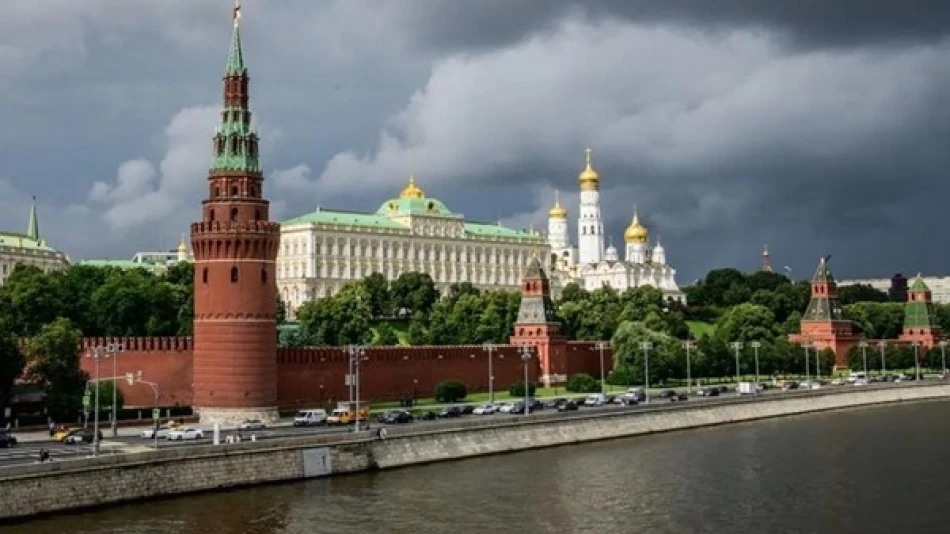
Russia Strengthens Resilience Against Sanctions, Kremlin Affirms
Russia Dismisses Trump's 10-Day Ukraine Ultimatum, Claims "Sanctions Immunity"
The Kremlin has brushed off President Donald Trump's latest threat to impose new tariffs and sanctions within ten days unless Moscow moves toward ending the Ukraine conflict. Russian officials claim they have developed "immunity" to Western economic pressure after enduring years of punitive measures, setting up an early test of Trump's negotiating strategy with Vladimir Putin.
Trump's High-Stakes Gambit
On Tuesday, Trump delivered a stark ultimatum to Russia: demonstrate progress toward resolving the Ukraine crisis within ten days or face additional U.S. tariffs and unspecified measures. The threat represents one of the new administration's first major foreign policy moves, signaling Trump's intention to leverage economic pressure despite his previously stated desire to improve U.S.-Russia relations.
The ten-day timeline is remarkably aggressive by diplomatic standards, suggesting Trump aims to force rapid movement on a conflict that has persisted for nearly three years. This approach mirrors his preference for deadline-driven negotiations, previously seen in his dealings with China on trade and North Korea on denuclearization.
Moscow's Defiant Response
The Kremlin's Wednesday response reveals Russia's confidence in its economic resilience. By claiming "sanctions immunity," Moscow is essentially arguing that Western economic warfare has reached a point of diminishing returns. This assertion isn't entirely unfounded—Russia has indeed adapted its economy since 2014, when the first major sanctions were imposed following its annexation of Crimea.
Economic Reality Behind the Rhetoric
Russia's claim of sanctions immunity reflects genuine structural changes in its economy. The country has redirected trade flows toward China, India, and other non-Western partners, developed alternative payment systems to SWIFT, and built up substantial foreign currency reserves. Oil and gas revenues, while fluctuating, continue to provide crucial funding despite price caps and export restrictions.
However, this resilience comes at a cost. Western sanctions have undoubtedly constrained Russia's economic growth, limited access to advanced technology, and increased the cost of financing. The question is whether additional measures would create meaningful new pressure points.
Limited Leverage in a Saturated Sanctions Environment
Trump faces a challenging reality: the U.S. and its allies have already deployed most conventional economic weapons against Russia. Major banks are cut off from Western financial systems, energy exports face restrictions, and technology transfers are heavily limited. This "sanctions saturation" may explain why Trump is threatening tariffs—a tool that has seen limited use against Russia compared to comprehensive sectoral sanctions.
The tariff approach could target remaining Russian exports to the U.S., including metals, fertilizers, and other commodities. However, bilateral trade between the two countries has already shrunk dramatically, limiting the potential impact of such measures.
Implications for Ukraine and Global Markets
The standoff creates uncertainty for both conflict resolution and global markets. If Trump follows through on his threats without Russian compliance, it could signal a more hawkish approach than many expected from his administration. Conversely, backing down from the ultimatum could undermine his credibility in future negotiations.
For Ukraine, the timeline pressure could be a double-edged sword. While it maintains focus on the conflict, it also risks forcing premature diplomatic solutions that may not serve Ukrainian interests. European allies will be watching closely, as they have borne much of the economic cost of sanctioning Russia while maintaining unity on Ukraine support.
Testing the Limits of Economic Coercion
This early confrontation will likely define the trajectory of U.S.-Russia relations under Trump's second term. Russia's dismissive response suggests Putin believes he can outlast American pressure, particularly given domestic political constraints on prolonged foreign engagements.
The outcome may ultimately demonstrate the limits of economic coercion against a large, resource-rich nation that has had years to adapt. If additional sanctions fail to change Russian behavior, it could accelerate the search for alternative diplomatic or military approaches to resolving the Ukraine conflict.
Most Viewed News

 Layla Al Mansoori
Layla Al Mansoori






